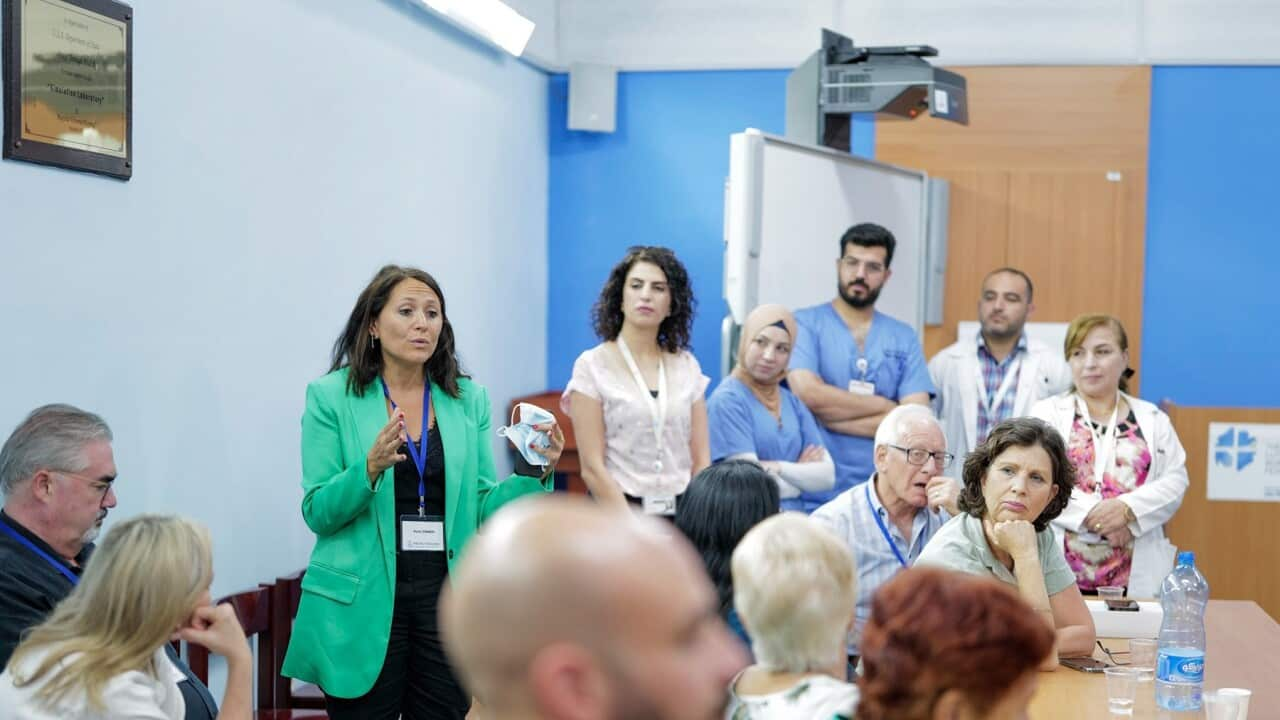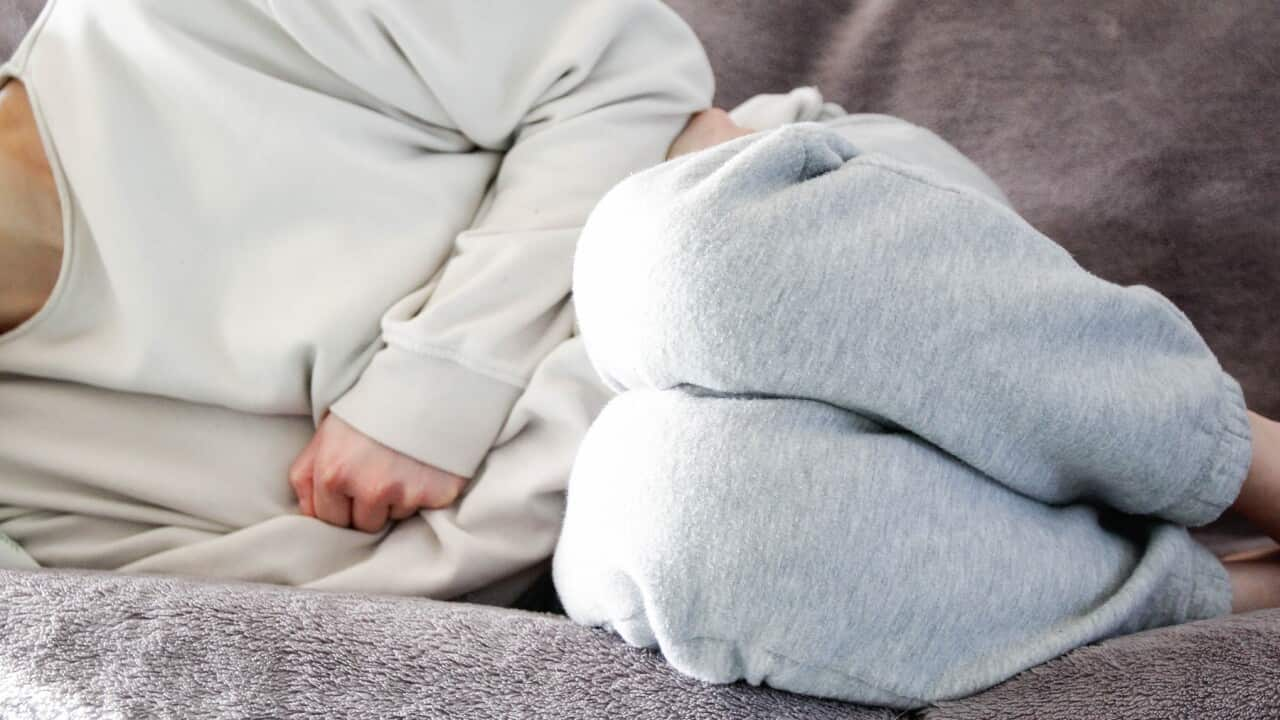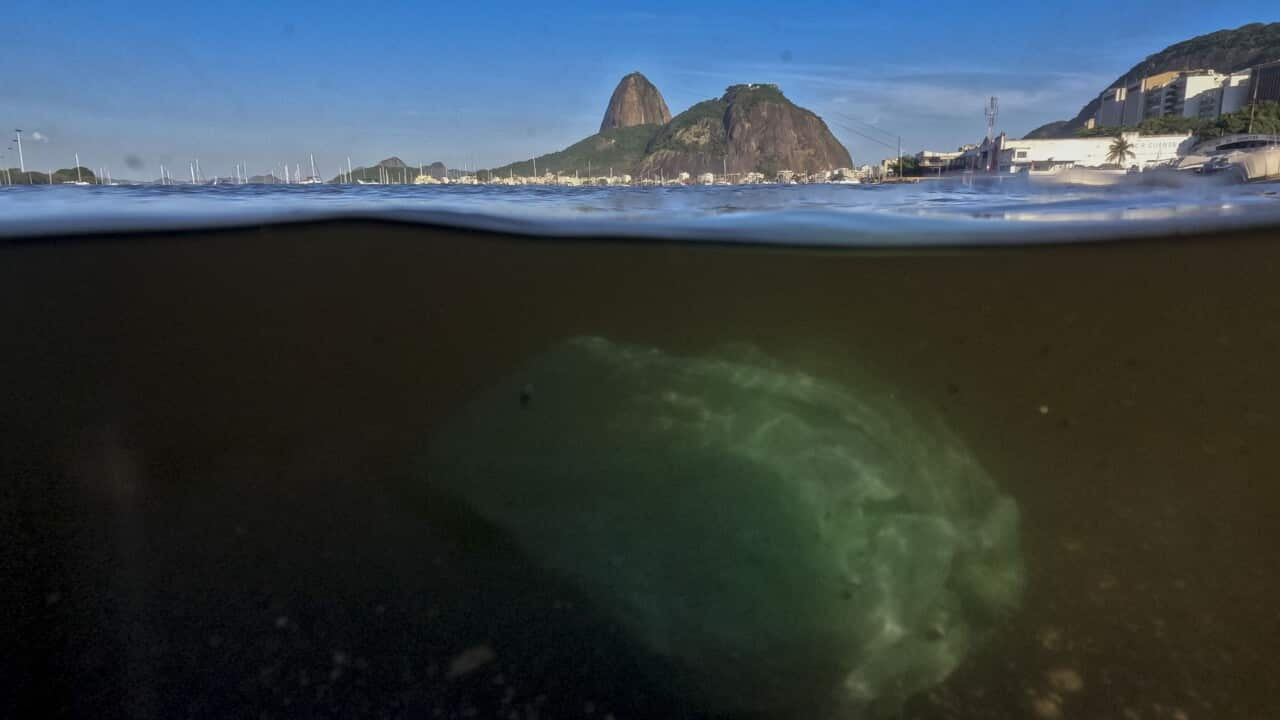TRANSCRIPT
Ronit Zimmer and Mohammad Asideh have come from very different circumstances but their cross-cultural push for peace between Israelis and Palestinians is one of radical empathy.
Ronit Zimmer grew up in Melbourne’s Jewish community and now lives in Israel’s Tel Aviv serving as the CEO of Rozana, an international organisation aiming to address barriers to quality healthcare in Israel and the Palestinian territories through joint initiatives.
She says at a time when peace seems further out of reach than ever, the example of cooperation Rozana sets offers a pathway to diplomacy.
“Rozana’s health diplomacy model really is not the only circuit-breaker but is a circuit-breaker that can put a stop to this fear-driven violence, where we really learn we've got stuff we can do together, we want to improve healthcare, disease knows no borders and here we can do stuff that not only makes us healthier, but it makes a more peaceful society where we can eventually all live in security and dignity.”
Mohammad Asideh grew up in the West Bank capital of Ramallah, has worked as a political scientist specialising in public policy and now serves as the Director of Engagement and Advocacy for Rozana.
He says he met Ms Zimmer on a Rozana mission in Israel and the West Bank in 2022, but a year and a half ago he then made the decision to leave the West Bank for Melbourne.
"When I left Palestine, I left because the violence between the Palestinians and the Settlers was increasing. And unfortunately, the policies of the current Israeli government didn't help at all. And having a daughter, I needed a safer place for her so that's why we moved to Melbourne. I had no plans to go back to Palestine afterward. It's the first time my family told me ‘Don’t come back’ because the situation is unstable."
This violence Mr Asideh refers to pre-dates the current Israel-Hamas conflict, and stems from clashes between Palestinian locals and Jewish settlers who have occupied Palestinian territory in Jerusalem and the West Bank since 1967.
This is an act seen as broadly illegal under international law, but a policy defended and repeatedly endorsed by the Netanyahu government.
The United Nations estimates that the Israeli Defence Forces and settler militias have killed over 300 Palestinians within the West Bank since October 7th, with thousands more arrested in numerous raids.
However, for Mr Asideh , this surge in violence was not enough to stop his decision to return to his homeland next month to be of better service to his people through the Rozana organisation.
“Yeah, I'm going back and to be honest I have doubts and I'm very worried, my wife even more worried. But the point to me is to be able to help the kids. We've been deprived from access to health, almost every Palestinian family has had to deal with that. Through Rozana, I can help to provide access to health to some of the women and children and also those in Gaza.”
Rozana, formerly known as Project Rozana, was started by Australian businessman and Jewish community leader Ron Finkel back in 2012, inspired by the story of a four-year-old Palestinian girl, Rozana Salawhi, who fell nine storeys out of the window of her family's apartment in the West Bank.
Her parents took her to a better-equipped Israeli hospital in Jerusalem instead of their local Palestinian hospital, a decision deemed by doctors to have saved their daughter’s life.
Mr Finkel was inspired by this to help improve the healthcare capacity in the Palestinian territories by expanding existing facilities and training Palestinian medical staff in Israel.
This has also included extensive patient transport initiatives moving injured from Gaza and the West Bank to better-equipped Israeli hospitals where necessary.
However, since the October 7 attacks in Israel by Hamas militants, where close to 1,200 people were killed in southern Israel and about 240 taken hostage according to the Israeli government, Rozana’s medical operations have been hindered by the resurgence of the longstanding conflict.Ms Zimmer explains.
“Look, we've had to make a couple of adaptations to a couple of our programs. We were sending too many buses a day to the Gaza border, bringing in patients from Gaza to hospitals in Israel in East Jerusalem. We've obviously had to stop that. In the West Bank, we were supporting organisations with networks of volunteer drivers and now, because of the situation, the volunteer drivers in Palestine and also in Israel are a little bit scared to go about and do their work."
The organisation has also recently offered trauma and emergency training for medical teams in Israel, East Jerusalem, the West Bank, and Gaza and helped provide housing for approximately 100 patients and their caregivers who are receiving treatment in Israeli hospitals and are unable to return to Gaza amid the conflict.
Israel's bombardment and ground invasion of Gaza following Hamas’ attack has now killed over 26,000, according to the Gaza health ministry, with up to 1.9 million of its 2.3 million population displaced.
Ms Zimmer says as a mother, the scale of the devastation has been hard to witness.
“It’s absolutely heart-wrenching. I'm also in touch with another mother in Gaza, she was a doctor who was doing her residency training in an Israeli hospital. She hasn't been able to see her children. There's people living in tents, not going to school, not having a normal childhood. It's heartbreaking. It's heartbreaking to see the trauma that the children of Israel have experienced and the child hostages that did return."
Mr Asideh says it’s been difficult living in Melbourne while his people are suffering so greatly.
“I have some friends and colleagues I worked with previously who live in Gaza. They have experienced several wars before in 2008, 2014 and 2021 and a few other wars, but they felt this is going to be different… it is different. Those colleagues I worked with, they lived in houses, now they live in tents. They sleep on the mud. They have no place to go to."
In response to the conflict, tensions between Muslim and Jewish communities both in the region and around the world have reached new heights, with Mr Asideh acknowledging that he’s witnessed this in Australia too.
He says Rozana often gets criticised by Israelis and Palestinians for their collaboration, but he believes it's important to use all available resources and allies in the pursuit for peace.
“We're not looking for an approach that divides people but an approach that brings people together and I think there is so much power in diversity and inclusion. Even within Rozana, there's so much diversity, not just in our religion and ethnicity and citizenship, but also in the way we view the conflict and the history of it. We bring Palestinians and Israelis together, but it doesn't mean those people agree on everything. But they come together despite the disagreement."













